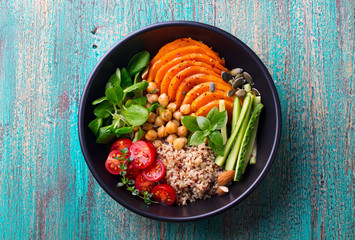Pros and Cons of Not Eating Meat
Pros and Cons of Not Eating Meat: A Closer Look At Plant-Based Eating
Animal meat has been a staple of the human diet for thousands of years, but recently more and more people are choosing to follow a vegetarian or vegan diet. There are several potential pros and cons of not eating meat, which we will explore in this article.

Pros
- One of the main points in favor of not eating meat is that it can be better for the environment. The production of meat requires significant amounts of resources such as land, water, and energy, and it also produces greenhouse gas emissions that contribute to climate change. In contrast, plant-based foods require fewer resources and have a lower environmental impact. According to one study done at the University of Leeds, nonvegetarian diets had greenhouse gas emissions 59% higher than vegetarian diets. Not consuming meat can therefore lower an individual’s carbon footprint by a large amount!
- Another pro of not eating meat is that it can be healthier. Plant-based diets are typically rich in nutrients such as fiber, vitamins, and minerals, and can help reduce the risk of certain diseases. For example, a review of studies published in the Journal of the American Dietetic Association found that vegetarian diets are associated with a lower risk of obesity, heart disease, and type 2 diabetes. Plant-based diets can also provide all the essential nutrients that the body needs, such as protein and iron, which can be found in plant-based sources like legumes, nuts, and leafy green vegetables. For individuals who struggle to get healthy levels of particular nutrients, supplements can also help fill the gap.
- A third pro of not eating meat is that it can save money. Plant-based foods are typically less expensive than meat, especially when you consider the cost of high-quality cuts of meat. For example, a pound of ground beef can cost around $4, while a pound of dried beans typically costs around $1. Cost differences like this may make a plant-based diet more affordable, especially for those on a tight budget.
Cons
- Not consuming meat can also have some potential cons. One is that it can make it more difficult to get certain nutrients that are commonly found in meat, such as protein and iron. While it is possible to get these nutrients from plant-based sources, some people may not be familiar with these sources or may not know how to incorporate them into their diet. This can lead to deficiencies and health problems if not managed properly.
- Another potential downside of not eating meat is that it can be challenging for some people to give up meat. For those who have been eating meat for most of their lives, the thought of giving it up can be daunting. This is especially true for people who enjoy the taste of meat and the convenience of meat-based meals. It can also be difficult to eat out or dine with others if you follow a plant-based diet, as many restaurants serve primarily meat-based dishes. However, this has gotten much easier in recent years. Many restaurants have begun offering vegan and vegetarian options. Plant-based meat alternatives also exist, such as Beyond Meat and Impossible Foods.
- One more disadvantage of not eating meat is that it can be time-consuming and require careful planning to ensure a balanced diet. Plant-based diets often require more meal planning and preparation than meat-based diets, as they may involve cooking and preparing a wider variety of foods. This can be a challenge for people with busy lifestyles who don’t have a lot of time to spend in the kitchen. It also requires some research into nutrition to avoid vitamin and mineral deficiencies. To ease the transition, consider following a pre-existing meal plan created by a professional dietician.
In conclusion, not eating meat can have several potential pros and cons. It can be better for the environment, healthier, and more affordable, but it can also be challenging to give up meat and get all the essential nutrients from plant-based sources. As you consider making the jump, try to keep in mind all the benefits, both to you and those around you.

